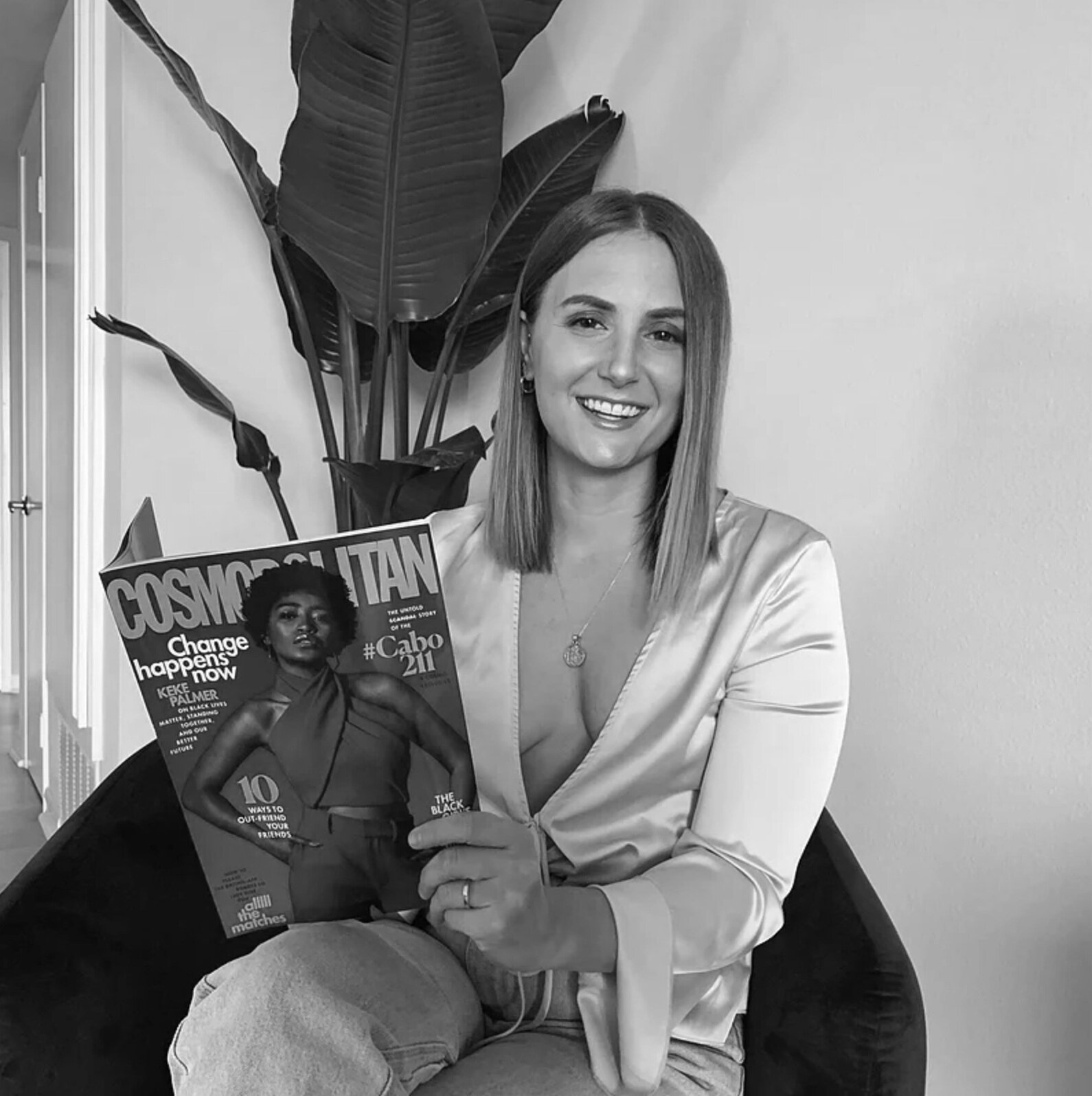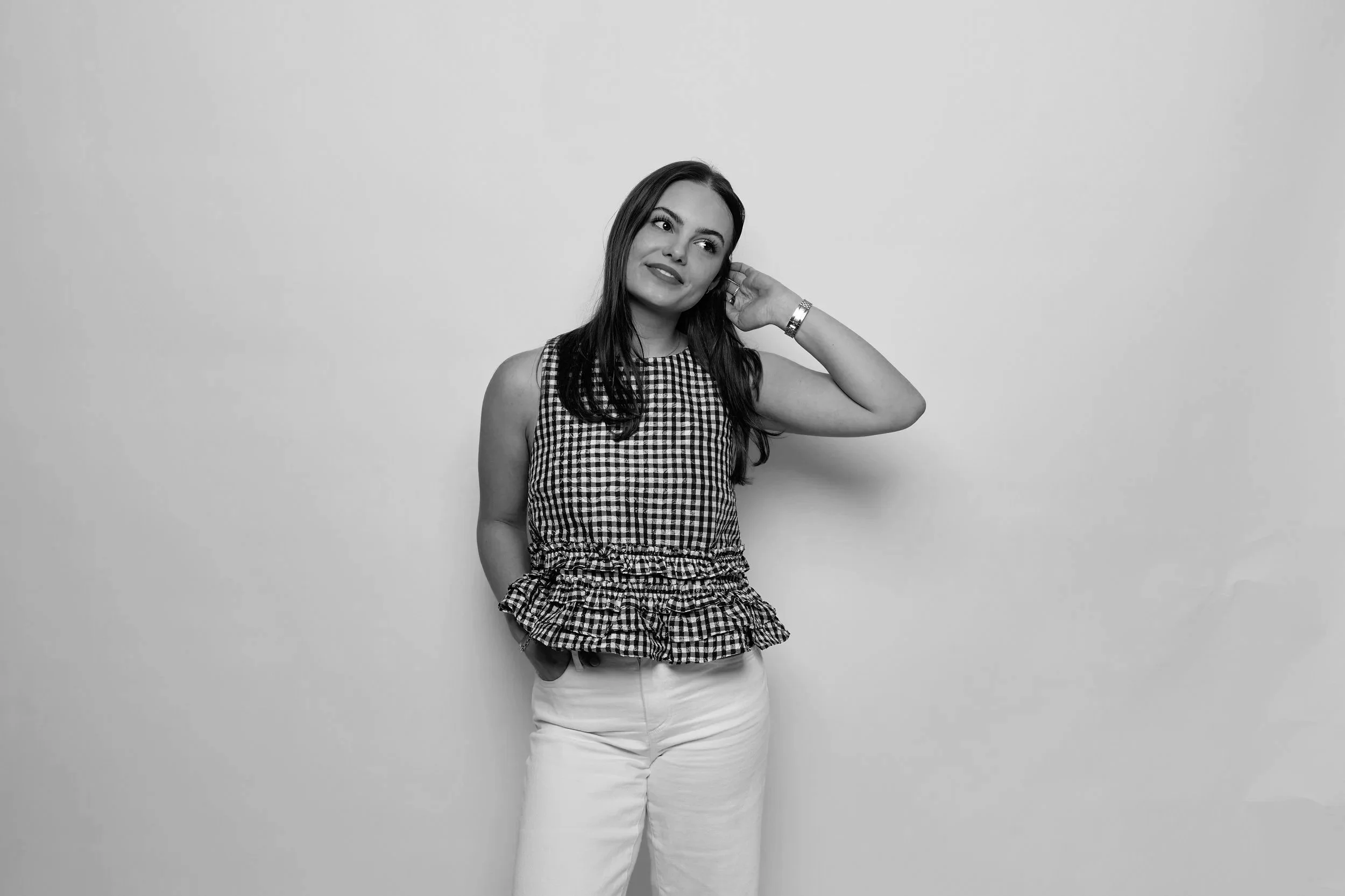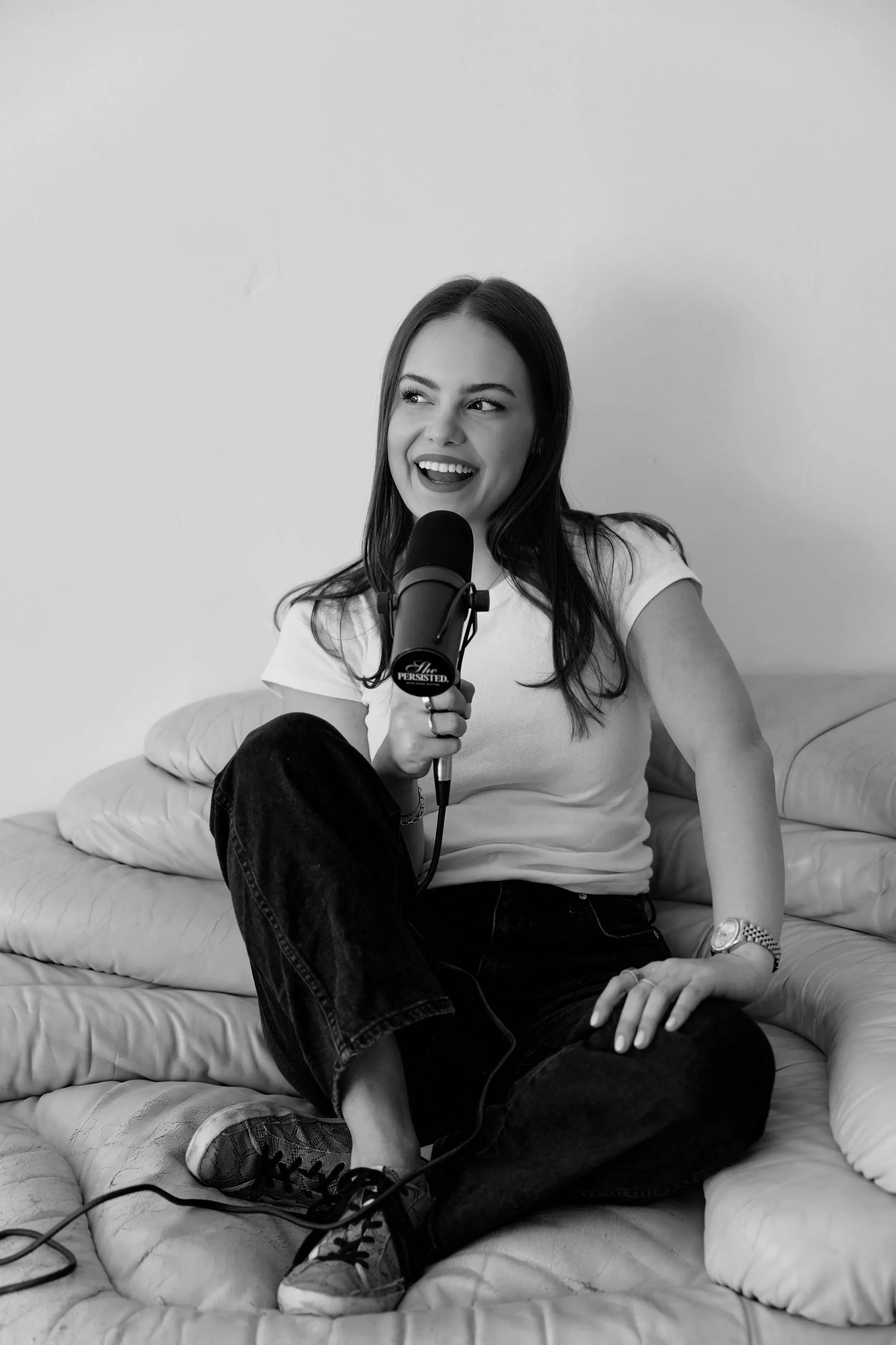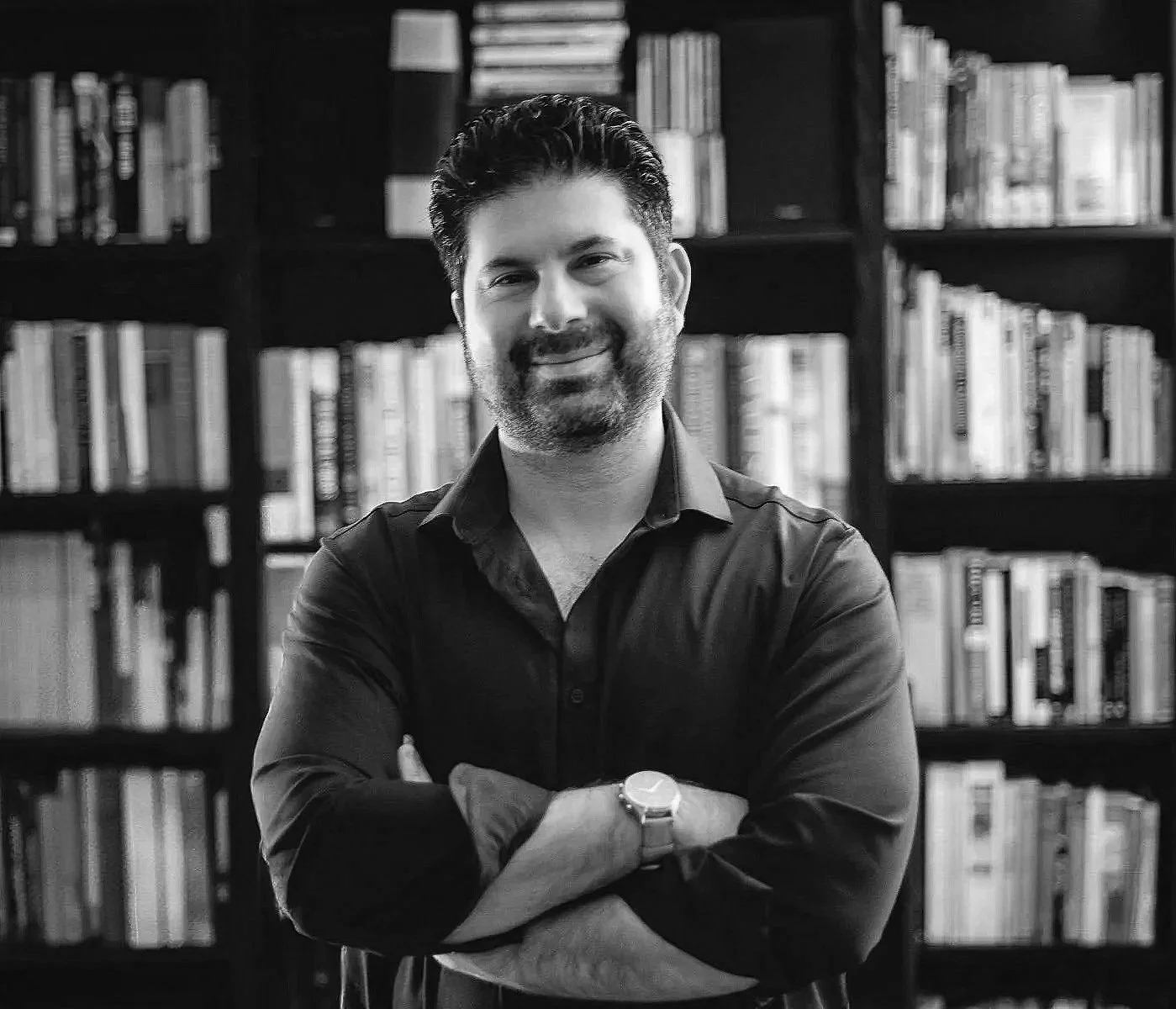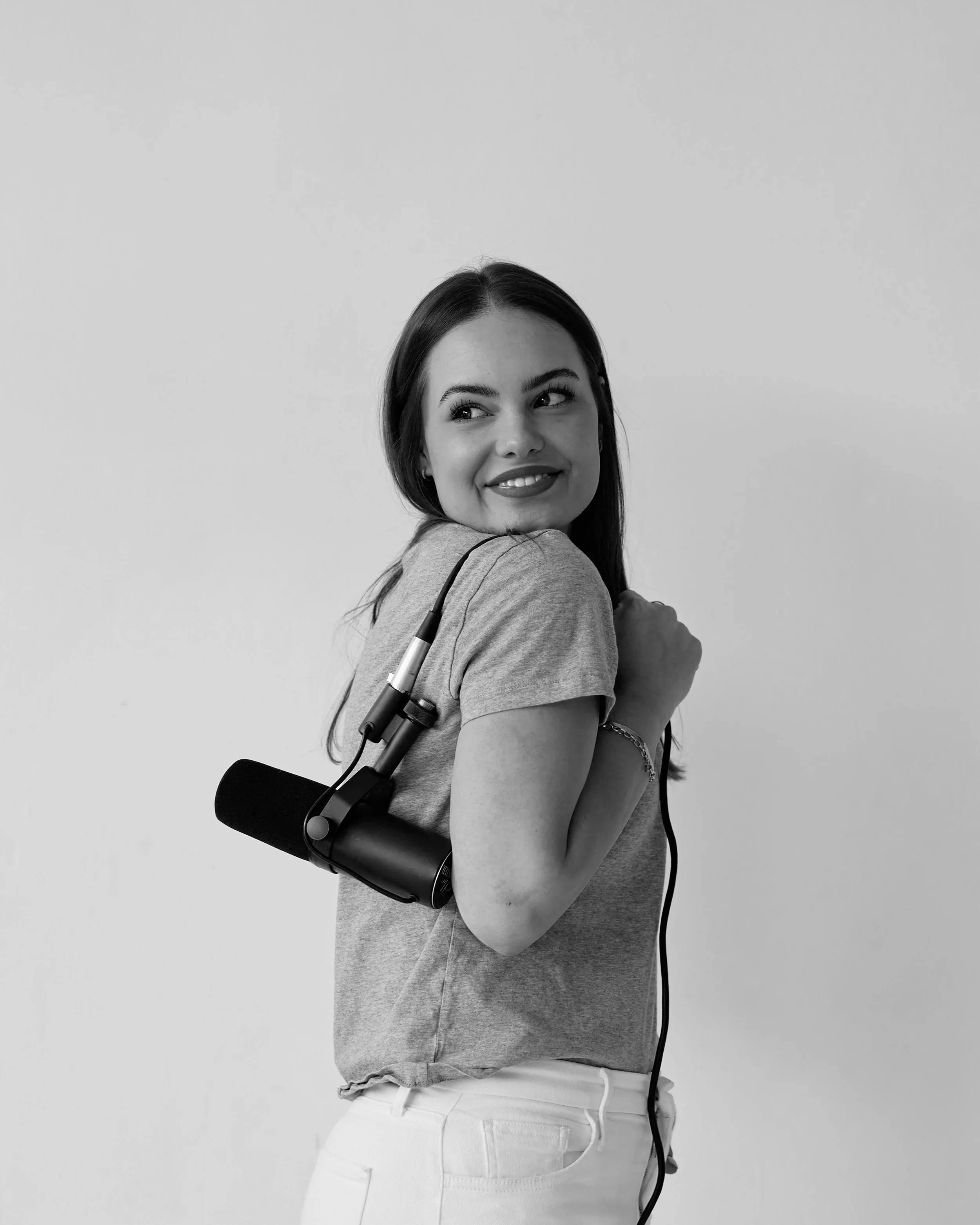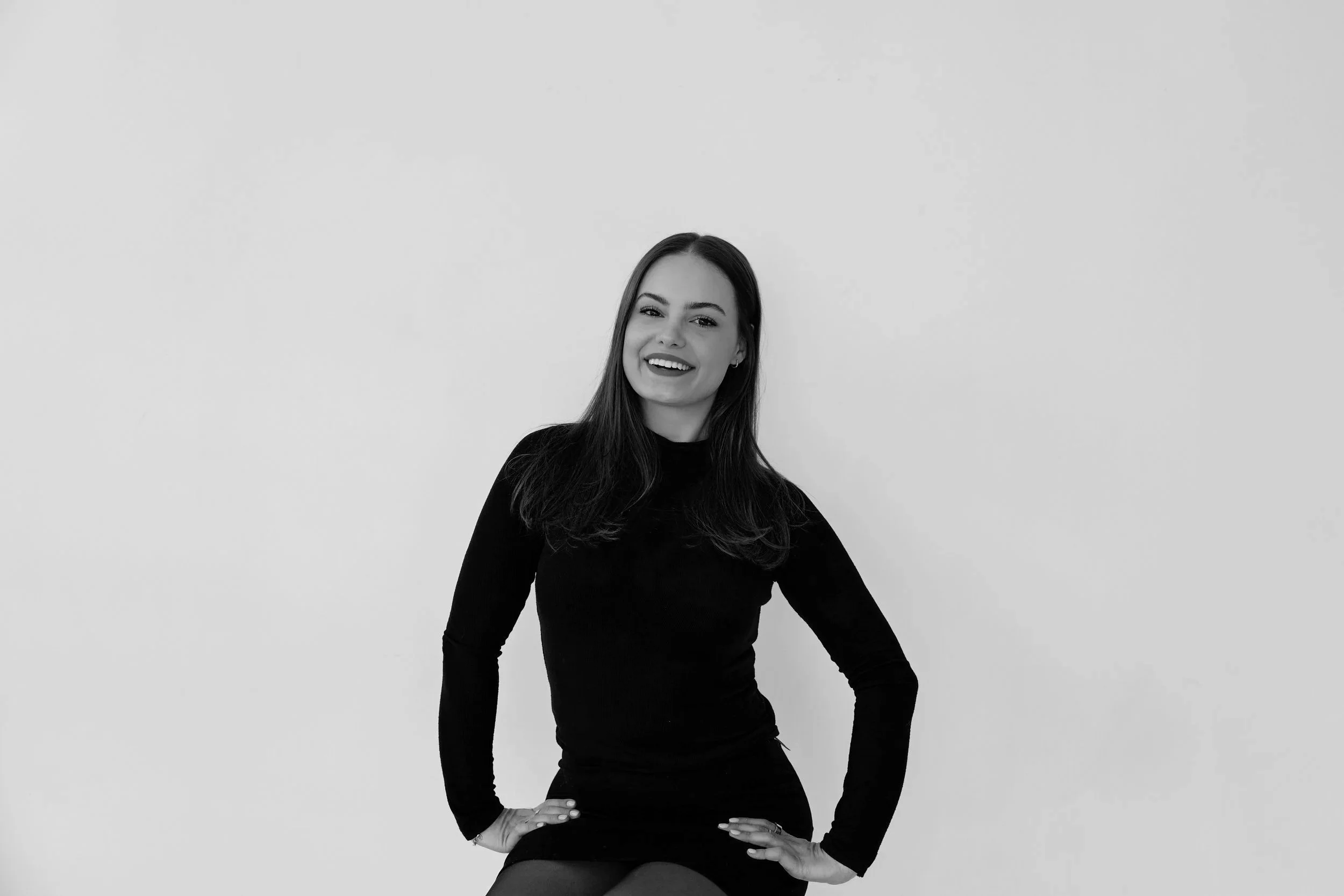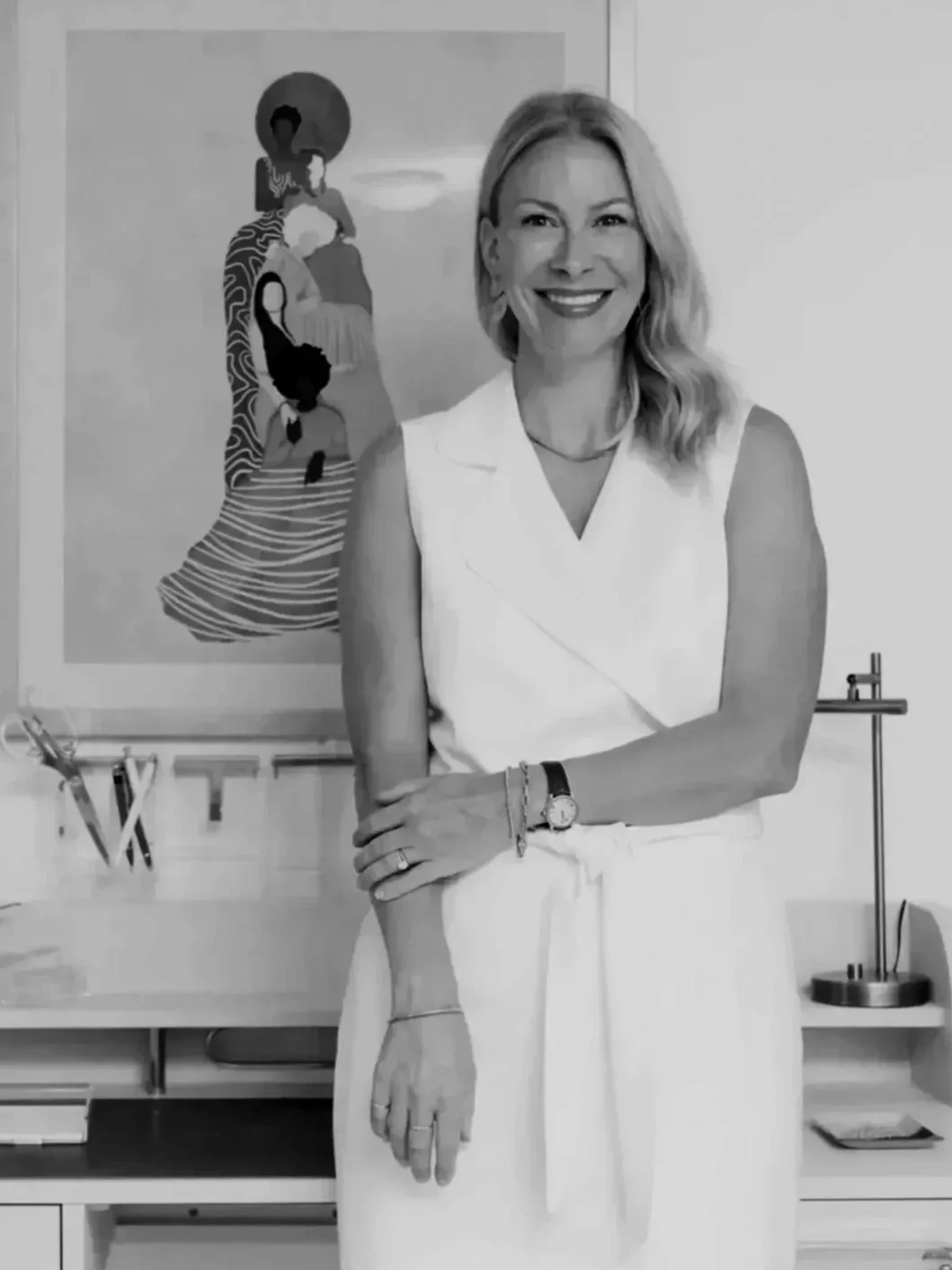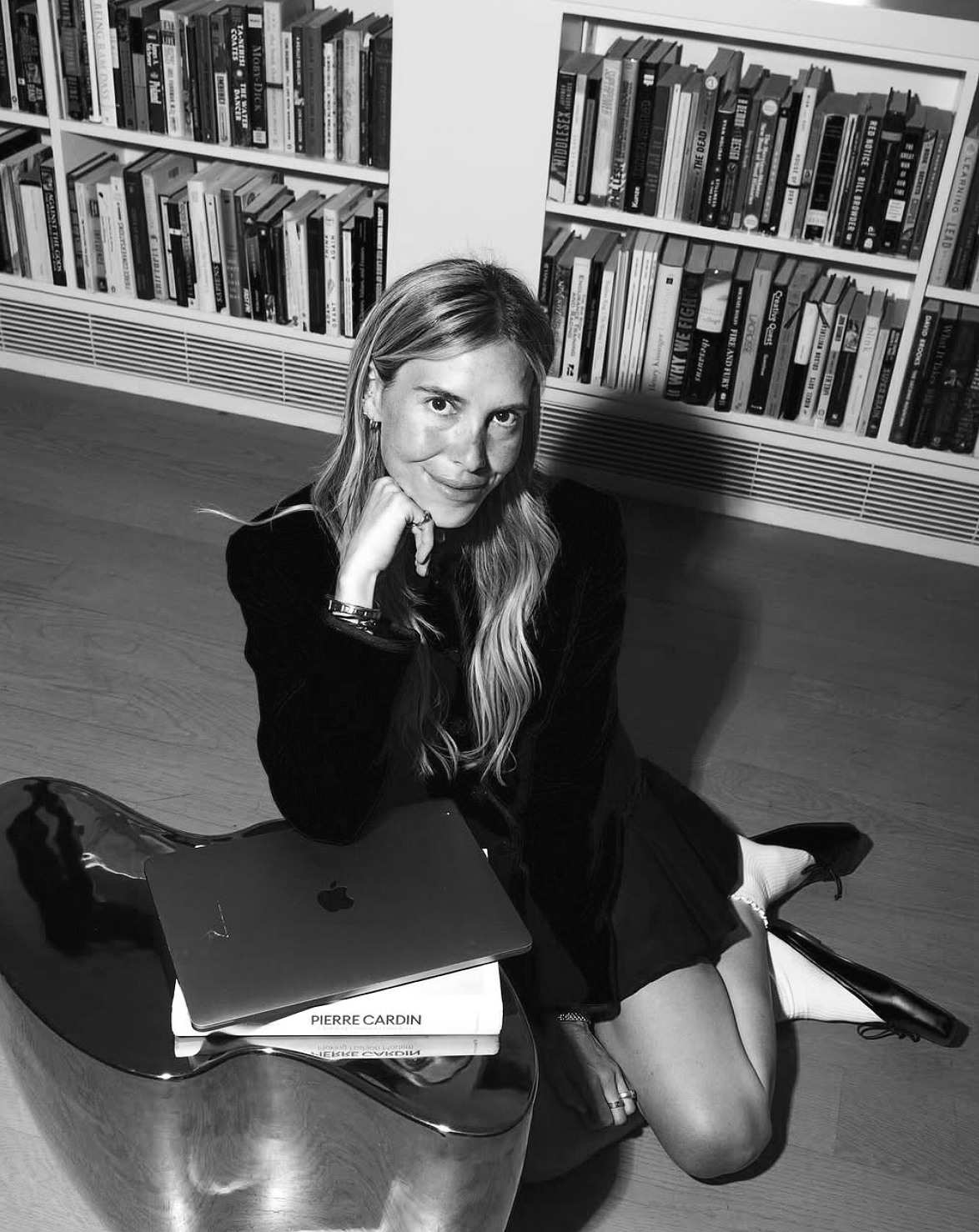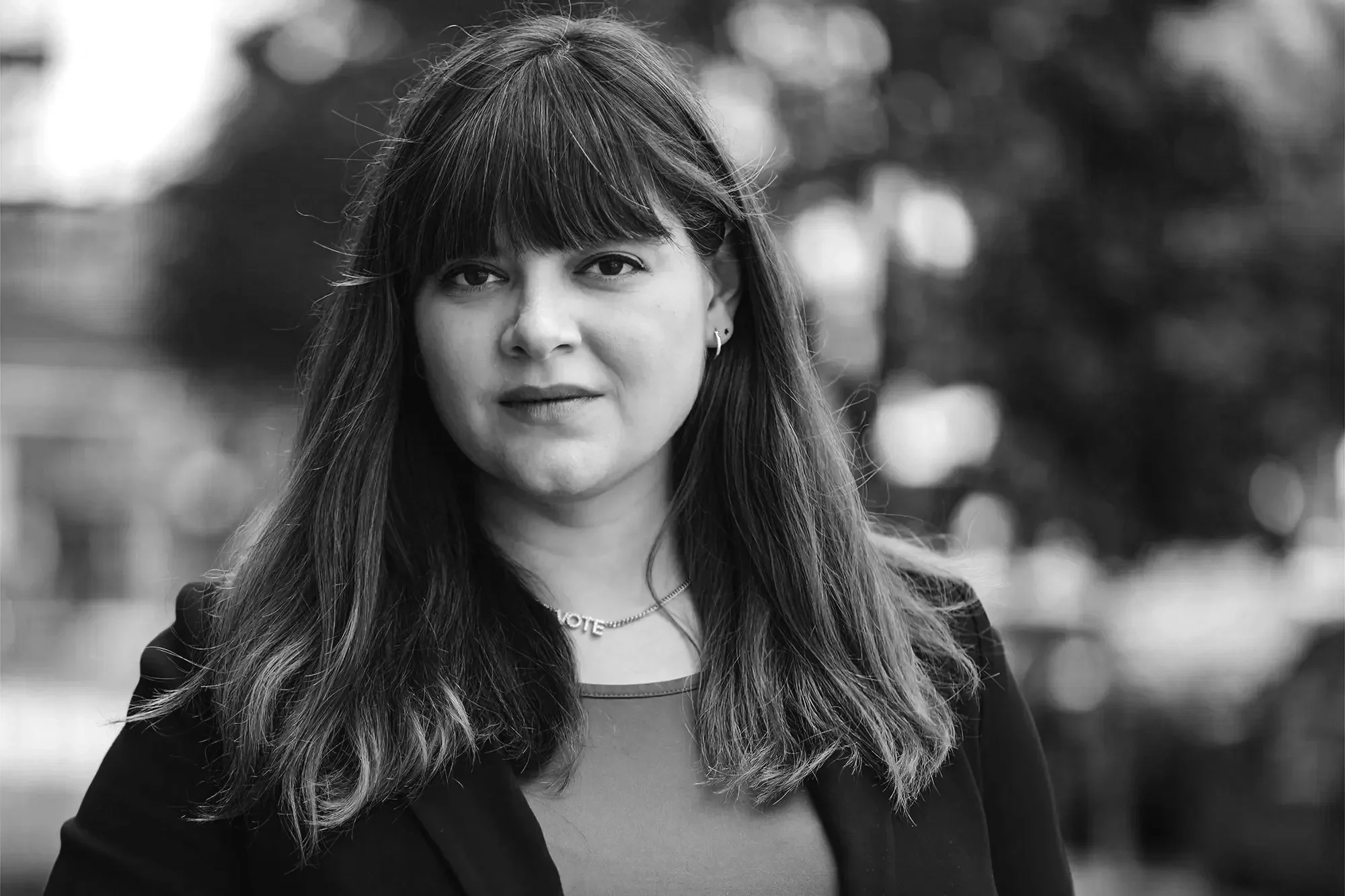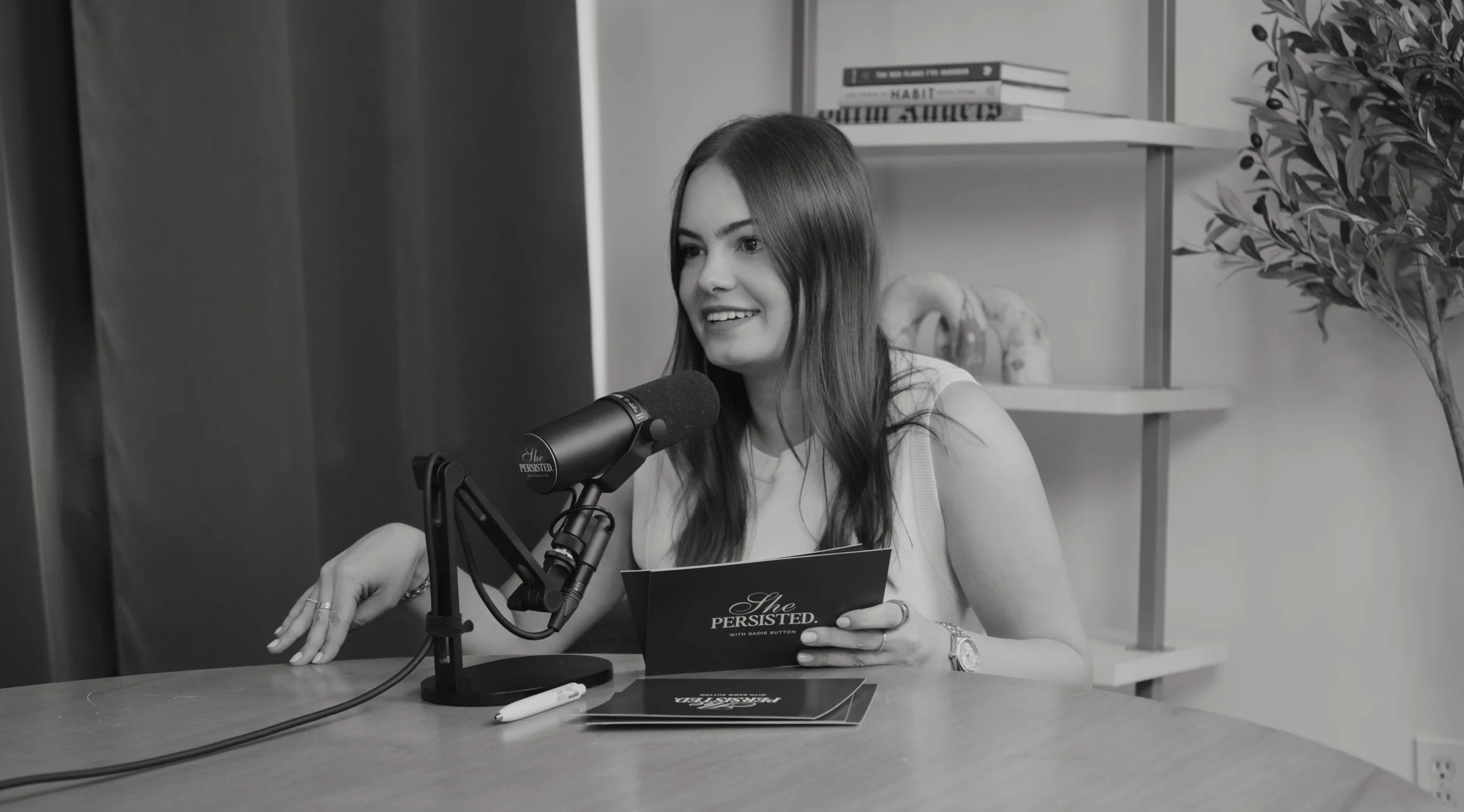54. RELATIONSHIPS + Attachment Styles feat. Kirstie Taylor
Kirstie Taylor is a dating and relationship writer who found a loyal internet following through her candid essays. Her work has been featured in Cosmopolitan Magazine, Well + Good, and The Washington Post’s, The Lily. She currently lives in Los Angeles where she continues to write words that help people with their biggest struggles in love. (bio via kirstietaylor.com)
Connect with Kirstie on Instagram (@wordswithkirstie), on TikTok (@kirstietaylorr), preorder her book here, or check out her website (kirstietaylor.com)
Kirstie and I dive into the following topics...
Why we must address our "big T" and "little t" childhood traumas before being in relationships
What are attachment styles and the difference between the 3 types (anxious, avoidant, secure)
The true function of boundaries and how to set them in your life
Why it's important to set boundaries with family members as a teenager
Tips to get through a break-up
Hook-up culture vs. dating to marry
Mentioned in this week's episode...
SNL boundaries sketch (so so funny)
About She Persisted (formerly, Nevertheless, She Persisted)
After a year and a half of intensive treatment for severe depression and anxiety, 18-year-old Sadie recounts her journey by interviewing family members, professionals, and fellow teens to offer self-improvement tips, DBT education, and personal experiences. She Persisted is the reminder that someone else has been there too and your inspiration to live your life worth living.
listen to this episode:
Tune in and subscribe on your favorite platform: Apple Podcasts | Spotify | Stitcher | Google Play | Radio Public | PocketCasts | Overcast | Breaker | Anchor
a note: this is an automated transcription so please ignore any accidental mispellings!
sadie: Hey Kirsty, thank you so much for joining me today. I'm so excited to have you on the show. Can you remind me? Of course. Can you tell me a little bit about yourself and kind of your journey that led you to the relationship work you're doing now?
kirsty: Yeah, totally. So I'm Kirsty, like you said, Kirsty Taylor and I am a relationship and dating writer. I also write a lot about self-love content and so. From what you told me are, we kind of have similar paths, too. what brought me to where I am today is the personal experiences that I've been through.
And so I've struggled with depression and anxiety since I was young, but it didn't really come to fruition or like become a huge issue until I was getting really deep into dating. And so basically essentially how it went was it was like a decade of relationship after relationship and dealing with my mental health at the same time.
And there was two particularly bad back-to-back relationships. And then I was like, What's going on here. What's like, why do I keep getting into these relationships that don't make me happy? Like, what is it about myself, that's wrong? And that's making me get into these bad relationships. And anyways, so I took a year off from dating and I worked on myself and I worked on uncovering some bad dating habits that I had.
And then I got really into researching. The psychology and theories and everything behind relationships. And I just became obsessed with it. And there was one point where I was like, I'll share my story online and see what happens or like a story, not my story, a story of mine. And. People loved it. And it took off from there and I just kept writing.
And since then I've written for magazines and newspapers and I have a book coming out. So it's all really exciting, but mostly I just love helping people. Who've been in the same position as me, which I'm sure you understand.
sadie: Totally. I think it's really interesting what she just said. I saw this quote yesterday on Instagram and it said if you do not address your childhood traumas, your relationships well, and of course not all of us have these super crazy big T traumas in our childhood, but we all have these things that have kind of led us to look at the world the way that we do, whether it's. Core belief systems, or even just to, for more optimistic or pessimistic or the way that we approach relationships.
And I think that is so true and that you can, when you're navigating your own life, you can kind of ignore whatever's going on inside. You can bake whatever, it's fine, bottle it up. But when you are really getting to know a person and being your true, authentic self and being pushed and challenged, like you can't hide that, like your relationship will address it.
So I just love that. So. I thought it would make sense to kind of talk, start by talking about attachment styles. And this is something that is brought, been brought up so many times in therapy. We just went over it in my psychology class, like all different parts of my life, but I think it's really helpful to understand when you're thinking about relationships.
So can you kind of walk me through what the attachment styles are and kind of what they can look like?
kirsty: Totally. So when I talk about attachment theory and there's really. I talk about three main ones, but there's more, there's a little sub categories of each one, but essentially the three main ones are secure attachment avoidant, attachment, and anxious attachment.
And I should backtrack and say attachment theory is it was created by actually I was about to quote the person that wrote the most famous book on it, but I don't think he's the person that came up. I'm not sure who came up with the theory, but it came up with, they came up with in the early 19 hundreds and essentially.
It has to do with the way that your parents raised you as a child, as a baby forms, your attachments that you create as an adult. So the fact that your attachments as an adult so same people always use the example of. Oh, when you left, when your, when your parents left you at pre-K and they left, what, what was your reaction?
Was it, did you cry for a bit, and then you went off and played with your friends. Did you cry for hours or were you like, and that's like a really interesting way to look at it because it kind of. Explains your attachment to your parents and how you would act in relationships. So avoidant kids would be like, Hey, I don't care.
It doesn't bother me. I can, I can deal with this on my own anxious. Kids are going to sit there for like hours and cry and potentially never recoup until their parents come back and secure. Kids are going to be like, Oh, I'm sad, but I can, I can recoup. I can handle this on my own. And I'm going to go play with other kids.
And so when it plays out in our relationships personally I have an anxious attachment style. So I'm the type of person that when I would date, I would be checking my phone every second. I'd be like, Oh my God, was that a buzz? Did someone text me? Or like, if they didn't text me back, I'd be like, there's something wrong with me.
What does that mean? Or if someone pulled away from me, I just wanted to like clasp onto them more avoid it. People are more so the people that are like commitment, phobes, They don't want to get into relationships. They, or they don't want to become emotionally close to someone that makes them feel uncomfortable.
And then secure people are basically the epitome of a great relationship and whoever like they're, they're fine. Like they deal with conflict. They sometimes get jealous, but they handle it well. They're able to deal with their emotions as well. And so I just love attachment theory because for me, it was really the biggest turning point for realizing that there's more out there and understanding.
Relationships and dating and, you know, putting a bit of psychology behind that. And I personally love attachment theory. It's great.
sadie: It's, it's so interesting. I remember when we, when we learned about it, I think it was a couple of months ago now, but you can think about it from the child, like what the child has learned will be effective in getting love and care and support.
And when you think of ambivalent attachment, these kids, they've learned that no matter how much I cry or scream or. Express care. There's no guarantee that my parent will reciprocate that and give me that attention. So they learned that it was just not a point in expressing that sadness, or if there are hungry or they're angry, whatever it is, they've just, they've been trained that it's not worth it.
And so when you have secure attachment, they do have those natural emotional responses because they know that they can count on their parent to be engaged and responsive and make faces at them and talk to them. And so. It's really, really interesting. And in a lot of cases, I don't think parents intend to kind of teach these messages to their babies at such a young age.
And I saw this, it was actually a tech talk yesterday, and it was talking about a theory about sleep training. And so that's when you like, let the baby just cry themselves to sleep. And it was so interesting because I have babysat when I was younger and I've. Been there when people are like, Hey, we're doing a sleep training.
Just let them cry. If it gets to be a really long time, you can go in, calm them down and make sure everything's okay. But they'll cry themselves to sleep and that's okay. And so they did this study where they checked the mom and the babies cortisol levels, and cortisol is kind of like your alertness, just stress, that kind of that's kind of how you can describe it.
And so the first night baby's crying, mom is stressed because baby's crying, both have really high cortisol levels. Second night. Same thing. The third night, the baby isn't crying. The mom's cortisol levels are lower. She's not stressed, but the baby's cortisol levels are just as high, but they've learned that there's no point doing that distress because they're not going to get a response.
kirsty: Anyways, random tangent.
No, that's so interesting. Especially I have a friend that's in nanny right now and she does night nannying sometimes. And that's because they're trying to sleep train and I'm like,
sadie: Yeah, crazy. So I wanted to talk about boundaries because we talk about attachment styles and another really interesting about boundaries is. You kind of think I've always thought of them as like, Oh, okay. Like you're setting boundaries for other people, but you're really setting boundaries for yourself and your own muscle health.
And that was something that was really, really hard for me to learn and realize. I kind of wanted to hear your perspective on that and kind of your advice for people in relationships that are looking to set boundaries.
kirsty: Yeah. I think what you said is really important, actually, I'm sure you've heard of Brenae Brown.
She's kind of made her way across culture and everything, but she's, I'm a psychologist and a researcher and she has a quote that I love. And it's that boundaries aren't meant to keep people out boundaries are meant to keep you safe. And I love that idea and I actually use a metaphor in my upcoming book about like, think of boundaries as like your.
You're at the beach and you have a stick and you're creating lines in the sand and your friends and family and everyone in your life can come and go. But the moment that they do something that makes you feel unsafe, there's going to be a line where they can't cross and you need time to heal and you need time to recoup before they able to come back.
Or sometimes, you know, you remove people from your life, whether that be dating or friendship, but. Some people really struggle with boundaries. And I think especially as especially women struggle with boundaries because we're taught, we need to be the caregivers and we need to give, give, give, give, give.
And so it's hard for us to draw boundaries or even men or just anyone. Just some people are very ha find it very hard to speak up for themselves. But without boundaries, You think that you're making the other person happy, but in, but what you're doing in your own yourself is that you're creating resentment.
So each time the person makes you feel uncomfortable or you feel violated, that's just going to build up and it's going to create a distance between them. And also just what matters most in a relationship and in life in general is that. You feel safe and you feel happy. So that's what really is important about creating boundaries in a relationship is that you feel safe in the relationship.
I dunno if you want me to go more into it, but yeah, there's, there's a lot of boundaries people struggle with and that I think like everyone, some boundaries everyone
sadie: should have. I want to hear those. I was going to ask you, what are your recommendations of boundaries to set and most relationships?
kirsty: Number one alone time, you need to set that boundary of, Hey, I need this time for me throughout the week.
Maybe it's two nights a week or. Just one day you come home and you're like, Hey, I've had a really hard day and I just kind of need like a night to myself. I think that's an important boundary to set and that can even be a talk you have with the person you're dating beforehand. You'd be like, Hey, like FYI.
There is nothing wrong with our relationship. If I say, I need a night to myself, let's just what I need. And if someone doesn't respect that, that's a whole other thing that's you know, you have to have a TA, you have to more talks with them and maybe convey to them why it's important, or if they really don't respect it, maybe they're not the right person for you.
So that's one spending alone time. And then I think ones that are very interesting and. For the point that I'm at in my life would be different from the point that you're out with your life, but it's still like this. These are twenties and you're 19, I assume, or
sadie: 17,
kirsty: 17. You're a teenager. Okay. But still we're at this point where like, You're at the point where you're going to be leaving home soon and everything.
And it says a shift in dynamics with your family. And I think family boundaries are also really part, I don't know if this is relationship specific, but yeah, no,
sadie: it's so it's so helpful for sure. And we forget that like our family, those are relationships that need boundaries to make sure you're feeling emotionally safe.
Yeah.
kirsty: So I think this is very interesting because we go through this shift where like, We were once kids completely controlled by our parents, then we become adults. And so now we're at this point where our parents still see us as kids and our generation the younger generations are at this point where we're much more self aware that our parents' generation was.
So it's also harder for them to see the world the way that we see it. So sometimes we need to set boundaries that are like like I can't be. I can't be talking to you every night on the phone, or what you, when you say that one thing, it kind of hurts me and it invalidates me like something I went, went through my, with my mom was that she kind of invalidated my experience when I went through an eating disorder and I was like, I need to set this boundary with you.
I just don't feel like we were on the same page about this. So I just don't want to talk about it. Like there's certain things like X, Y, and Z is makes me really sad and uncomfortable. So I just don't want those things to be brought up between us. And I mean, she was a little weird about it at first, but it was fun and it made our relationship better.
So I think family boundaries are really important, especially when you're younger, because you're going through that transition of like a kid to like functioning, have your own thoughts,
sadie: adults. Totally. This is totally random. Are you an SNL fan by any chance?
kirsty: Saturday night live. I've seen it here and there.
Yeah.
sadie: So they did this sketch. I think it was two weeks ago. Maybe it was last week and it was these like zoom call FaceTime calls where kids were not even kids, kids of parents who are independent adults living in another state or city. We're calling their friends saying, Hey, like, I really don't think it's a good idea for me to come home for Christmas this year.
And the parents were like, So you're saying you don't love me. And the kid was like, no, like I I'm just saying with the state of the pandemic, like, it just, it really doesn't make sense as you're going. We didn't want you to come anyways. It's fine. And I totally overreacting and it was just, it was a hilarious comedy sketch and I'll link it in today's show notes, but it really does kind of.
Emphasize how you can see so differently in terms of setting a boundary and a relationship. So just having that awareness of what the other person is hearing offerings and validation on that. But yeah. Yeah,
kirsty: it's hard. I think that what you said is on point the validation, some people, older parents and older people, they just have a harder time understanding that like our emotions are what we're experiencing and we don't necessarily want to be like, mom, you're a bad person.
It's just like, mom, this is what I'm experiencing. If you want to have a great, solid relationship, like we need to get on the same page about that. I think it's funny what you said about the SNL. I'll have to check it out. I see the same things on Tik TOK when it's like. Oh, I try to talk to my mom about this and all of a sudden it's like, Oh, the, the, like all the leads are Brown and the mom's just like, You hate me.
You hate me. You think about Martha
sadie: Bob funny, but yeah, no, it's, it's definitely really, really interesting and something that, that deserves some thought. And there's also the kind of, I don't want to, I don't know if it be described as a power struggle, but with a parent child relationship. The parent already adds more thorough authority and power in that relationship.
So trying to voice your opinion and what you're saying especially if that's an emotional experience can be really uncomfortable or really difficult and really hard to feel seen and hurt. And that's something. As you get older, you're moving out, whatever it is really creating a community that can support you and let you be seen and valued and heard and be your authentic self, because that's something that's so amazing about getting to leave home and be independent as you get to make that community.
That makes you feel that way, even if you haven't had that before. And so it's, it's an amazing opportunity. So I wanted to touch on breakups something. Many people struggle with. I am terrible going through breakups. So I wanted to kind of hear your tips and tricks for getting over someone ending a relationship to begin with and then going
kirsty: from there.
Hmm. Yeah, I guess I have three main ones. I'm going to say that. So I don't forget to hit on each one. Okay. Biggest one, not biggest one, actually. I think they're all three really big, but I guess like one of the biggest ones, especially nowadays. Unfollow, your ex just unfollow them. Maybe even blocked them.
And it's not going to be like a they're horrible they're mean it's just that you need that time to like remove them from your life. You need that time to heal and move on and not just keep seeing them and missing them and everything. I know it's so tempting to stock your ex and what they're doing, but unfollow them, unfollow them on Snapchat and involve them and talk Instagram, whatever you're on.
Just know you're not doing yourself any favors. And that kind of goes into my second one, which is just give yourself like two, three, four months. Depending on how long the relationship was to just not have any contact with them. I know a lot of people, if, especially if the breakup wasn't horrible or like, if you still have kind of feelings for them and you're like, Oh, I want to be friends one day.
Like. Everyone always wants to do that. Everyone always thinks it's a great idea. And maybe it is, but it's not something, I mean, yeah, fair. I mean, I think for the most part, it's not, it's not necessary, but just don't talk to them for three, four or five months. Like give yourself that time to really. Focus on yourself and move on.
There is no reason to stay in contact with them. And I know it's going to be hard sometimes, but do not send them a text at 2:00 AM being like I miss you. Don't stock their social media. Don't do any of that. What do you mean
sadie: when you say focus on yourself? Really getting detailed about what that looks like.
Totally.
kirsty: So see your friends. I'm sure I'm not the only one, but when I would get into relationships, I would 100% like stop seeing my friends so much. So go out and see your friends. Do all the stuff you used to love before you got into a relationship. Like I remember when I got into a relationship in high school, I stopped drawing because I just loved drawing.
And for a long time, I never picked it back up because I just lost it in that relationship. And then just never like, really thought about it again. Do the stuff that you loved before the relationship. Take care of yourself, do take baths and do face masks and journal your little heart out with all of your thoughts and everything.
Just to do anything, literally, anything that makes you happy, it makes you feel proud. So, I mean, depending on where you're at in your life, if you're at high school or you're in college, like just focus on things that are going to make you feel. Proud of yourself and that doesn't just have to be school.
Cause I know some people don't feel proud about school. Yeah, that's fine. But it's like hobby. Like you love playing guitar and learn a new song. If you love painting, go take a community class somewhere, go take an online class or learn something like do something that just makes you feel really good about yourself.
Because when you feel like crap or you have no sense of self identity, you're gonna miss that relationship more because it was something to fill you up. But you want to try and fill you up yourself up with something else and stuff that makes you feel proud. That's what I mean by focus on
sadie: yourself. Yeah.
I love it. Okay. You did two of the things. What's the third thing for getting older.
kirsty: The third one is like my secret weapon and helps so much. It's a breakup list. So. Well, so what you should do is take out your phone and I see your phone. So you have it everywhere. You go with him, take out your phone, create a notes app.
And I want you to think of every single thing you did not like about your ax, anything from like, it was just kinda like, yeah, it rubbed me the wrong way to like, wow. That was horrible. Like, Oh, that time they left me at a party and I was all alone and didn't know anyone down to, you know what, like their styles.
They were a mouth breather and superficial, and I would never say like, determine if you want to date someone based off that we're talking about an ex literally anything, it can be superficial. Like I had an ex and I actually thought his beard was weird and his face was kind of shaped right.
sadie: Wrote the government.
Yeah.
kirsty: And so then any time that you are sad about the breakup or you're missing this person, pull out the list and read it. And all of a sudden you're going to, because when you're in a breakup or you're remembering a past relationship, you do, we tend to do this thing called romanticizing. You only remember the good and you don't remember the bad.
So if you put all of that into a notepad and you look or a note in your notes app and you Look at it, whenever you're sad, then you're going to squash any of that romanticizing. And you're going to remember what that relationship was actually like, and it might not make you feel totally better. They don't make you feel a lot less like longing for what you used to have.
sadie: Totally. So the last thing that I wanted to touch on was mixed signals. And that is something that, especially now, when we're like, kind of navigating like online relationships and communication, it's so much more prevalent. So what is your kind of guidance around that? How can you tell what someone is truly timed to say to you, et cetera?
kirsty: Yeah. So I've always had a very, a strong mantra about mix singles and I think 100%, if someone wants to be with you, they're going to put that effort in. So what I always say is mixed mixed signals or a clear signal someone's not interested. There is maybe sometimes very small outliers where someone got really busy or someone came, became really emotionally upset over something that happened in their life.
And they just weren't able to. Communicate that or tell you. And so what I would do, if someone was sending you mixed signals, like, you know, they're texting you a lot for a week and then all of a sudden go radio silent and you're like, what's going on, bring it up, bring it up to them and be like, Hey, they know, you know, if someone doesn't text you for a week, they know they didn't text you for a week.
Hey, what was up with that? Or is everything okay? And if they give you some excuse, that's just kind of like. Yeah, everything's fine. Why I feel like is that the kind of person you want to be with, do you want to be with someone that doesn't text you for a week? If you think that person's the one, is that how you want to be treated from the one?
Like, that's what I think about mixed signals. It's just, if someone wants something, they go after it. Yeah. Yeah.
sadie: So from the other, if you're in the other person's shoes where you're like trying to like, kind of maybe like distance yourself or kind of put space in that relationship, do you recommend that kind of like, I'm assuming you don't recommend ghosting, but what is your kind of advice for being direct with someone and being like, Hey, this isn't working and I'm sorry about that.
What is like your, your advice.
kirsty: Yeah, I think kind of what you just said, some of the text, and then, I mean, I know it's hard to be, I know it's scary and hard, but I'm trying to, there's two things I want to say. I'm like trying to put them into one thing and I know it's scary and hard. No one wants to hurt someone's feelings, right?
But just remember that you are still hurting someone's feelings by literally not talking to them and trying to go see them, or like acting like everything's fine, but like slowly pulling away, you're making that pain actually harder because guessing what someone's feelings really sucks and it's much harder to be like to under it's just much harder to go through ghosting or the slow fade or whatever.
Honestly, even if it's as simple as a text, as. Hey, I think you're great, but I just don't feel the connection. Is better than nothing. And honestly, if the person comes back at you and they're like, wait, what? No. What? Like, and like, and some people fear that, that someone will be like, no, what? We had a great thing at that point, you can not respond because at that point you've given them what you've told them.
It's not working. I mean, it's nice if maybe you explain it, but you don't have to. And at that point that's not ghosting. You said it's not working and that's better. To give someone than to just be like, Oh, this isn't working anymore. Although if you're in a really long relationship, I still suggest giving a bit of explanation.
But if you're just dating someone for a couple of weeks and you're like, ah, you know what, this isn't, this, isn't it, you know, Hey, like this isn't working anymore. I think we should see other people are just don't feel that connection. Cause that's how, that's why we date. We tried to date people. We don't work and yeah.
sadie: So I think it was on Tik TOK. You can tell, I spend lots of my time on Tik TOK, but I've heard of people kind of being like, you know, those like really intense ones where they're like do the music and they're like, are you dating to date or to find the one? And I kind of wanted to hear your perspective on that.
Do you think it's important to be dating, to find the person that you want to spend the rest of your life with or. Like casually, like kind of what was your head space around that?
kirsty: So I realized, yeah, this is a huge shift that's happening in that a lot of people want to more casually date. And I think there is literally nothing wrong with that.
I think that if you want to casually date be clear about it, and there are tons of people out there that want to casually date, if you want to try and find a relationship, go for it. I think personally if I were your age, I would be like, or in college I would. I would date for if personally I would want, I'd be like, Oh, I want a relationship, but I wouldn't necessarily be like, Oh, I'm trying to find the one.
I'd spend the rest of my life
sadie: because
kirsty: gosh, it's like, I went to high school with people that married people. They went to high school West. So. I think it's really, you're going to have even statistics show when you find the one that you're going to marry, like later in life, that relation you're that is going to go so much better than if you get married when you're in like high school or something.
So to date casually, totally fine. To date for a relationship. Totally fun. Just be really honest with the person that you're dating about what you want, because you all, if that's the casual dating is what you want. You can find someone that wants that too. And if you want something that's serious, but you're dating is going to want it's casual.
It's just like, you're both setting yourself up for a lot of
sadie: pain. Totally. Well, this was such an amazing conversation. We touched on so many different things with mental health and psychology, and then just tips and tricks as far as ending relationships and dating and all that kind of stuff. So thank you so much for joining me today and Jason for having me.
Yeah. And sitting down and having this conversation, where can people find you?
kirsty: Yeah, totally. So I'm on tech talk actually. That's Kirstie Taylor, which is just K I R S T I E T a Y L O R R. So two r's. And then on Instagram, I'm words with Kirstie
sadie: yeah. That's how people awesome.
© 2020 She Persisted LLC. This podcast is copyrighted subject matter owned by She Persisted LLC and She Persisted LLC reserves all rights in and to the podcast. Any use without She Persisted LLC’s express prior written consent is prohibited.

